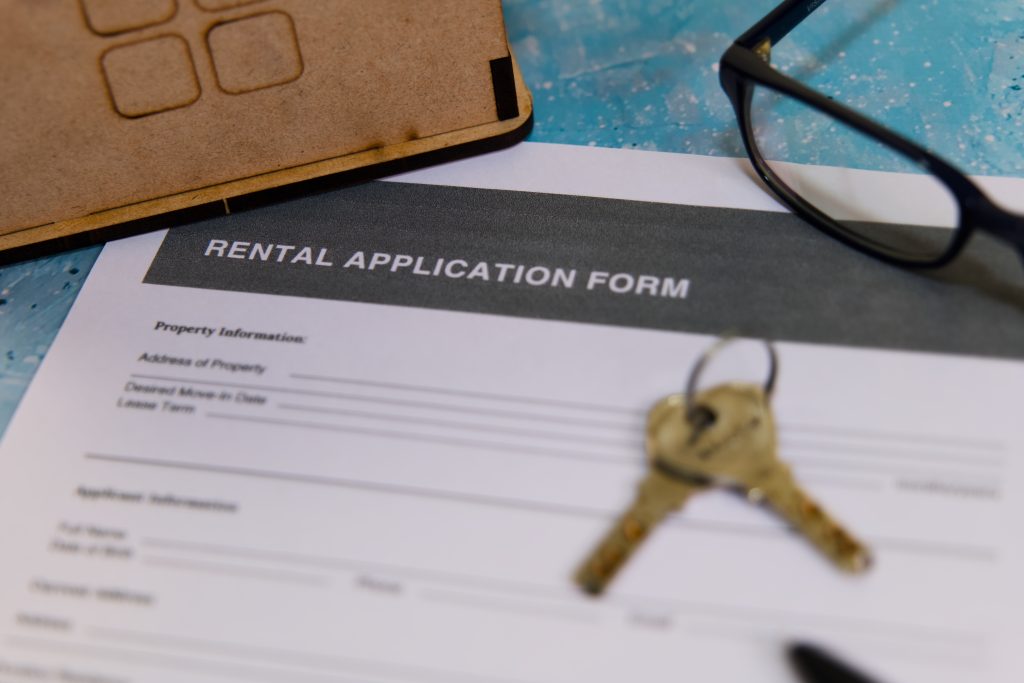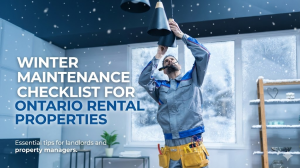Choosing the right rental management company in Hamilton is a big decision. You’re trusting someone with your property, your income, and your peace of mind. The right company won’t just handle the basics: they’ll act as a partner, making sure your investment is protected and tenants are happy. Asking the right questions helps you separate the companies that just go through the motions from those that truly deliver value.
Found Spaces has managed rentals across Hamilton for years, and we know firsthand what property owners should be looking for. Below, we’ve outlined the essential questions to ask, with insights on why they matter.
Which Rental Management Services are Included, and What’s Extra?
When considering a rental management company, it’s essential to clarify what services are included in their package. Start by asking if leasing covers advertising across multiple platforms, which can significantly enhance your property’s visibility. Tenant screening is another critical area; inquire about the processes and tools they use, such as credit checks and background screenings, as these directly impact the quality of tenants.
Maintenance services should ideally be available 24/7. Make sure to ask if this is part of their offering or an additional cost. Legal services are also crucial; find out if they manage evictions or if these services are billed separately. Additionally, understanding their eviction processes and related costs can save you from unexpected expenses down the line.
Property inspections are vital for maintaining your investment, so ask how frequently these are conducted. Also, ensure you understand how they handle tenant complaints and feedback, as this can affect tenant satisfaction and retention. Financial reporting is another key factor; check if they provide monthly or quarterly reports to keep you informed about your property’s performance.
With Found Spaces, there’s no guessing. Our standard management package includes leasing and advertising across multiple platforms, detailed tenant screening, and coordination of maintenance and inspections. We also handle financial reporting and provide easy access to records so you always know where your property stands. If something falls outside the basics, we’re upfront about the cost; no surprises down the road. Think of it this way: the more transparent the company is, the less likely you’ll end up frustrated by hidden add-ons.
How do you Keep My Property Compliant with Local Rules?

Staying compliant with Hamilton’s rental laws isn’t optional: it protects both you and your tenants. Ask any management company how familiar they are with local bylaws and whether they handle licensing on your behalf. Regular property inspections are another good sign they take compliance seriously.
It’s also worth asking how they stay on top of regulatory changes. A proactive company will track new rules, train their staff, and document compliance efforts so you’re covered if disputes ever arise.
Finally, find out if they offer guidance on tenant rights and responsibilities, and whether they work with local agencies when issues come up. A clear risk management plan and strong local connections show they’re equipped to keep your property on the right side of the law.
Found Spaces makes compliance a priority. We track changes in Hamilton’s rental bylaws, handle licensing, and conduct regular property inspections to ensure your rental meets all requirements. Our team also educates tenants on their rights and responsibilities, reducing the chance of disputes. If issues arise, we keep detailed records that can protect you legally.
When you ask this question, listen for specifics. A vague “we take care of it” isn’t enough. You want a company like Found Spaces that can walk you through exactly how they keep you compliant.
What’s your Pricing Model, and Total Cost of Ownership?
Clear pricing is one of the most important things to nail down with a rental management company. Ask whether they charge a flat monthly fee or a percentage of rent, and think about which makes more sense for your goals.
Beyond the basics, look for extra charges that can sneak up on you; things like tenant placement, renewals, maintenance coordination, or emergency calls. Some firms even bill separately for detailed financial reports, so it’s worth clarifying upfront.
If you own multiple properties, ask about bulk discounts or long-term contract savings. And don’t overlook the simple stuff: how billing works, when payments are due, and whether they provide an annual cost summary. The clearer the pricing, the easier it is to plan your cash flow and avoid surprises.
What’s your Tenant Screening Process and Turnaround Time?

Tenant screening is one of the most important parts of protecting your rental property. Ask the management company what criteria they use to approve tenants, do they run credit checks, background checks, and verify income and employment? A strong process reduces risk and helps ensure reliable tenants.
Turnaround time also matters. The faster they can process applications, the less time your property sits vacant. Ask for an average timeline so you know what to expect. It’s worth checking how they verify rental history and whether they contact previous landlords. References can reveal how applicants treated past properties. Transparency is key too, so find out if they provide you with screening reports.
Just as important, confirm that their process follows fair housing laws. A reputable company will make compliance a priority. Finally, ask if they use digital tools to streamline tenant screening. Technology can speed things up while keeping the process thorough and consistent.
How do you handle maintenance and after-hours emergencies?
How a rental management company deals with maintenance and emergencies says a lot about the experience they’ll provide for both you and your tenants. Start by asking how tenants can report issues; is there an online system, or do they need to call? The easier it is to submit requests, the faster problems get solved.
Check if they work with a network of trusted contractors. Established vendor relationships usually mean quicker turnaround, especially for urgent repairs. It’s also worth asking about their average response time and whether they have a system for prioritizing urgent versus routine requests.
Preventive care is just as important. Do they schedule regular inspections or have strategies to catch issues before they become costly repairs? Ask if they set aside a maintenance budget and how they keep tenants updated throughout the process. Finally, make sure there’s a clear plan for emergencies. Tenants should always know who to call after hours, and you should know that your property will be taken care of quickly and professionally.
How will you Communicate and Report to Me?

Clear communication is the backbone of a good relationship with your property manager. Start by asking how often you’ll receive updates and in what format; are reports sent by email, or can you log in to an online portal? Consistency and accessibility matter, especially if you want to stay on top of things without chasing down information.
Find out what types of reports you’ll get. A solid management company should cover finances, occupancy, and maintenance updates, giving you a complete picture of your property’s performance. It also helps to know if you’ll have a dedicated manager as your main point of contact, so you’re not bounced around when you need answers.
Ask how they handle urgent situations. If something serious comes up, how quickly can you expect a call or email back? A clear policy on response times can save a lot of frustration. Some companies also offer real-time tracking portals, which add transparency and let you check in whenever you like.
Finally, ask about tenant communication. A company that communicates well with tenants often prevents issues before they escalate. And make sure they keep records of all communications; having a paper trail protects both you and them if disputes arise later.
What’s your Plan to Reduce Vacancy and Optimize Rent?
Keeping your property occupied and earning strong rental income comes down to smart marketing and tenant retention. Ask the rental management company what strategies they use to attract renters. Do their listings stand out with quality photos and targeted ads, or are they just posting the basics? Also, find out how they determine competitive rental pricing; a well-priced unit rents faster and helps you avoid long vacancies.
It’s worth asking if they track market data to guide pricing adjustments and marketing efforts. A company that stays on top of trends will know when to raise rents or offer incentives to stay competitive. Just as important is how they keep good tenants. Strong communication, quick responses to repairs, and perks for longer leases can go a long way toward reducing turnover.
Ask if they recommend or coordinate property upgrades. Even small improvements can boost appeal, attract better tenants, and justify higher rent. Regular market reviews also show whether they’re proactive in keeping your property competitive.
Their network matters too. Do they have connections with local agents or use high-traffic online platforms to fill vacancies quickly? Finally, check their approach to lease renewals. Do they time marketing campaigns around peak rental seasons or use tenant feedback to make improvements? These details can make the difference between a property that sits empty and one that consistently performs well.
How Do You Manage Arrears and Disputes?
Late payments and tenant conflicts can quickly derail a rental relationship, so it’s important to know how your management company handles them. Start by asking about their process for late rent. Do they send reminders before due dates, and how do they escalate if payments are missed? A clear, documented approach, with records of all communication, helps prevent misunderstandings.
Ask about their eviction procedures too. A reputable company will follow the law closely while treating tenants fairly. Beyond finances, it’s worth knowing how they manage disputes around maintenance, noise, or neighbor concerns. Strong communication and fair mediation often resolve problems before they get out of hand.
Some firms also offer flexible payment options for tenants facing short-term financial trouble. This can help preserve tenancies and reduce turnover. You’ll also want to confirm if they have access to legal expertise for more complex disputes. A company that can combine firm policies with empathy will keep both owners and tenants on steadier ground.
What does your move-in/move-out and inspection process look like?

Inspections and checklists are your first line of defense in protecting a property. Ask how the company documents conditions before and after a tenancy; detailed notes and photos are non-negotiable. Clear records make it easier to handle disputes over damage or security deposits.
Find out how security deposits are managed, including timelines for returns and how deductions are explained to tenants. A transparent process avoids friction and builds trust.
It’s also worth asking how often they perform routine inspections during a lease. Regular check-ins catch small issues before they become expensive repairs. After move-out, look for companies that provide a detailed inspection report and share it with you promptly. This kind of follow-up shows accountability and ensures nothing slips through the cracks.
Why you, and not a generic ‘GTA’ firm?
Hamilton isn’t Toronto, and you’ll want a management company that knows the difference. Local expertise matters. A firm with deep Hamilton experience will be familiar with zoning bylaws, tenant regulations, and neighborhood rental trends that a generic GTA outfit might miss.
Ask for testimonials or case studies from Hamilton clients; this shows they’ve successfully managed properties like yours. Local firms also tend to have stronger networks of contractors, trades, and service providers, which means faster, often more affordable maintenance.
Personalized service is another key differentiator. A Hamilton-focused company is more likely to tailor their approach to the unique needs of this market, whether that’s through targeted marketing, hands-on communication, or being readily available when issues arise.
Finally, ask how they invest in staff training and ongoing industry education. A company that keeps its team sharp will stay ahead of regulatory changes and market shifts. Combined with a physical presence in Hamilton, that expertise makes them better equipped to protect your investment and maximize returns.
Why Found Spaces Is the Partner You Need

Finding the right rental management company isn’t just about checking boxes. It’s about trust, communication, and knowing your investment is in good hands.
Found Spaces offers Hamilton landlords exactly that. We bring together clear pricing, thorough tenant screening, proactive maintenance, and reliable communication; all backed by local knowledge of Hamilton’s rental market. With us, you don’t just get a service provider. You get a partner who treats your property as carefully as you do.
If you’re ready to simplify rental management, reduce stress, and maximize your returns, Found Spaces is here to help. Contact us today and discover how easy it can be to manage your Hamilton rental with the right team by your side.

Frequently Asked Questions
What experience do you have in managing rental properties?
It’s important to know how long the company has been in the rental management business. Ask about their track record and what types of properties they have managed.
How do you handle tenant screening?
Understanding their tenant screening process can help you gauge how they find reliable tenants. Ask about their criteria and the background checks they perform.
What methods do you use for marketing vacant properties?
Find out how they promote empty rentals. Ask about their marketing strategies, such as online listings or local advertising, to fill vacancies quickly.
How often will I hear updates about my property?
It’s crucial to know how they communicate with property owners. Ask about the frequency and types of updates you can expect regarding your rental.
What maintenance services do you provide for the properties?
Inquire about how they handle property upkeep. Ask if they have a team for repairs, and how they address emergencies or regular maintenance requests.




